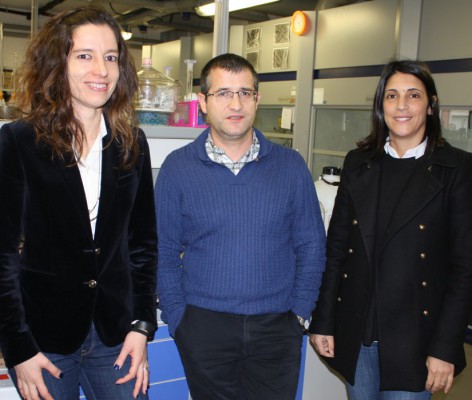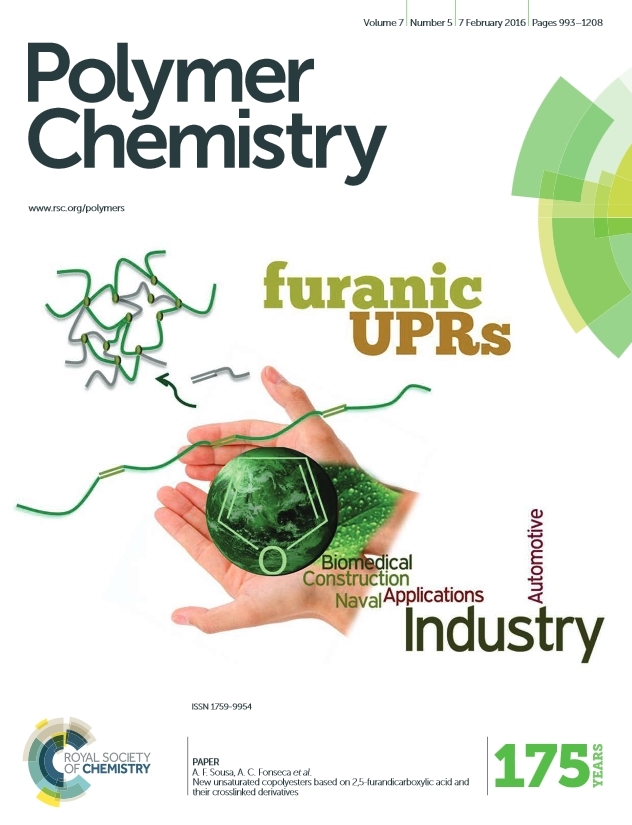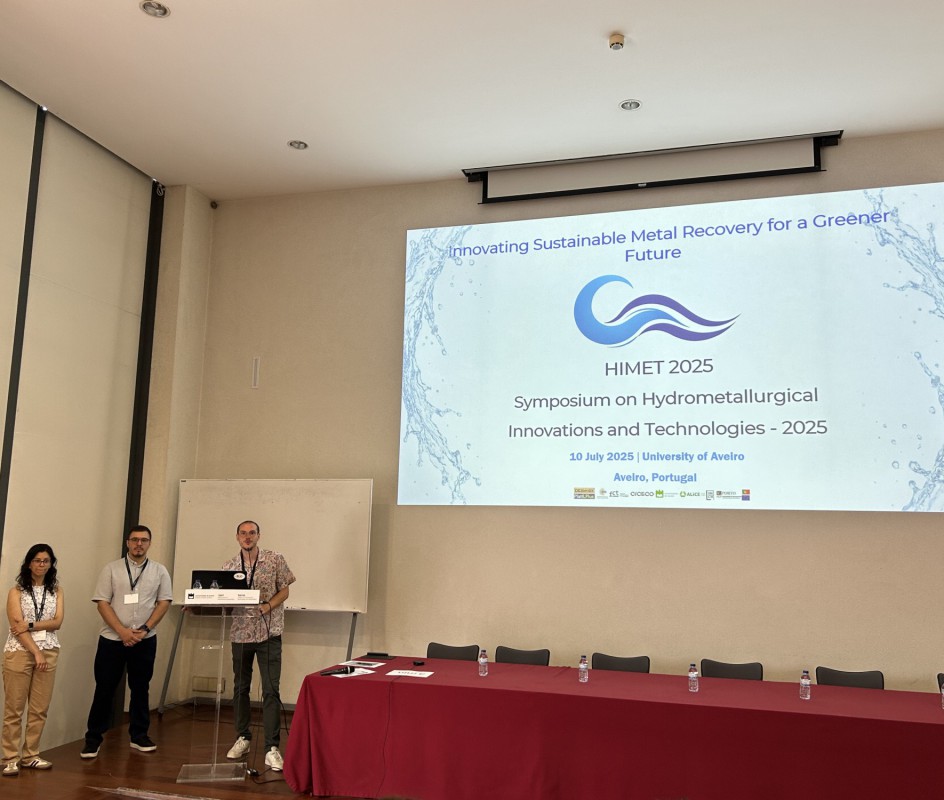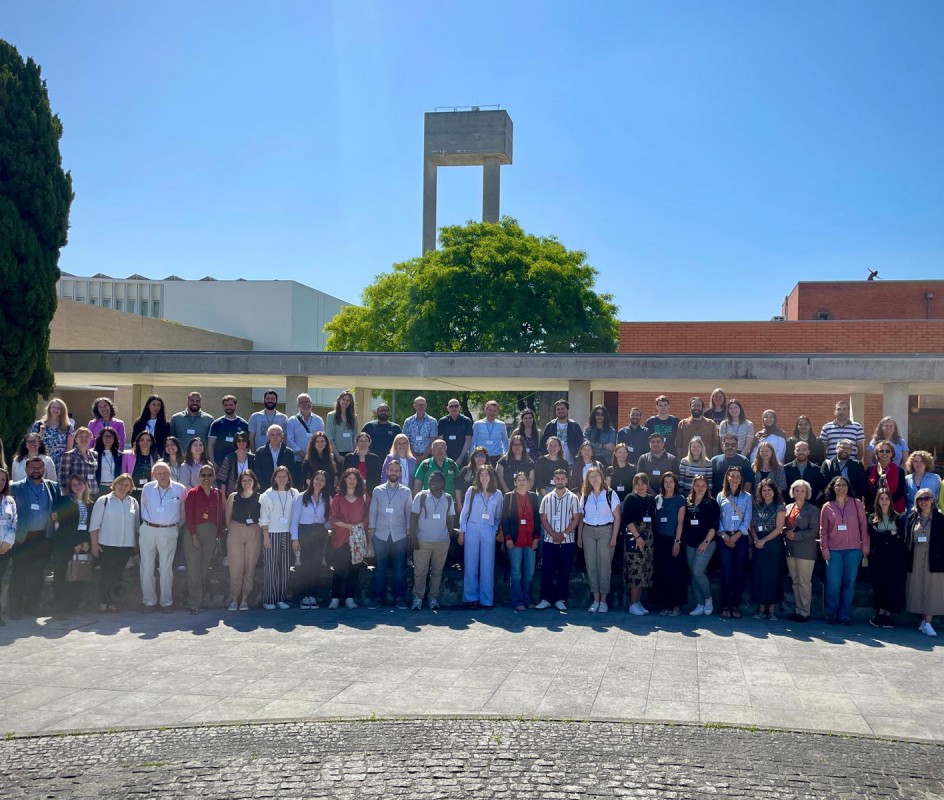
A team of researchers from CICECO, University of Aveiro (UA), in collaboration with the University of Coimbra has developed a new high performance biomaterial, derived from plant sugars, and which is an environmentally friendly alternative to oil-based materials. The new material has properties that allow it to compete on equal terms with the commercial resins of petrochemical origin widely used by industry, for example, in cars, boats and furniture. The discovery was announced in the latest issue of the prestigious journal Polymer Chemistry and cover honors.
"These new bioresins are sustainable and have properties that allow it to compete with current commercial resins from petrochemical origin. The future may therefore be less dependent on oil. And the UA is helping ", welcomes Andreia Sousa, the Aveiro team coordinator who joined scientists from CICECO/Department of Chemistry. In the University of Coimbra, the study was coordinated by the researcher Ana Fonseca.
"The great advantage of this new material is that it be based on renewable sources, ie, the famous 2.5-furandicarboxylic acid (FDCA) which has attracted great attention from the scientific community and is highly coveted by industry chemical and polymers, "says Andreia Sousa.
The acid, obtained from sugar plants such as sugar cane through a series of chemical reactions, explain the researchers, "may be perhaps the substitute of the most important acid of plastics industry, the terephthalic acid, which is originated from fossil fuels". Another aspect, no less important, is related to the fact that "these new bioresins are not cross-linked using styrene, a very toxic molecule and is commonly associated with environmental and health problems."
Greener coatings
 The unsaturated polyester resins, are usually very applied as a coating, for example in furniture, but particularly in automotive and boats components. In addition to these applications, the researchers point out, "as the composition of our bioresins is based on a careful selection of renewable and biocompatible monomers, we believe that may have applicability in the biomedical field." A future which is already being researched by our team.
The unsaturated polyester resins, are usually very applied as a coating, for example in furniture, but particularly in automotive and boats components. In addition to these applications, the researchers point out, "as the composition of our bioresins is based on a careful selection of renewable and biocompatible monomers, we believe that may have applicability in the biomedical field." A future which is already being researched by our team.
This research is part of a wider demand, shaking the international scientific community, in search of answers to questions (almost philosophical): How can we reduce our dependence on oil? How can humanity evolve to make a greener planet?
"The basic idea behind this research is based precisely on the creation of new sustainable biomaterials for biomedical area application, consisted in using the FDCA, obtained using sugars extracted from plants, on the synthesis of a new generation of unsaturated polyesters and crosslinked corresponding bioresins" points Andreia Sousa and Ana Fonseca.
And why use the FDCA? The researchers explain: "Of course, we could have opted for another diacid from renewable sources. We chose the FDCA because we see on it, like many other scientists, a huge potential to revolutionize the world of plastics, replacing the homologous terephthalic acid from petrochemical origin. "
See the article here: http://pubs.rsc.org/en/Content/ArticleLanding/2016/PY/C5PY01702E#!divAbstract
See the cover here: http://pubs.rsc.org/en/content/articlepdf/2016/py/c6py90016j?page=search
Related Articles
We use cookies for marketing activities and to offer you a better experience. By clicking “Accept Cookies” you agree with our cookie policy. Read about how we use cookies by clicking "Privacy and Cookie Policy".













